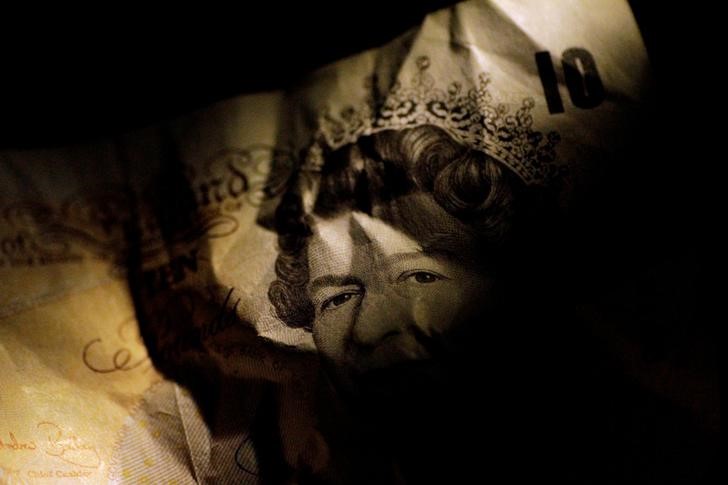By Andy Bruce and William Schomberg
LONDON (Reuters) - Britain's public finances deteriorated in June as rising inflation pushed up the government's debt bill, driving home the challenge for finance minister Philip Hammond who is under pressure to loosen the public purse strings.
Friday's figures showed the rise in prices - fueled by the pound's drop that followed the 2016 vote to leave the European Union - has forced the government to pay more interest on its bonds, around a third of which is linked to inflation.
Britain's budget deficit in June stood at 6.854 billion pounds ($8.92 billion), up 43 percent compared with the same month last year, the Office for National Statistics, citing figures that exclude state-controlled banks.
The shortfall for June was much bigger than a median forecast of 4.8 billion pounds in a Reuters poll of economists.
In the first three months of the financial year, the budget deficit widened by 8.9 percent compared with the same period in 2016 to 22.8 billion pounds, the ONS said.
"Today's figures illustrate the challenges confronting (Hammond) to manage the public finances, as he is faced with a double whammy of slowing growth and rising inflation on one side and calls for greater expenditure on the other," said Philip Shaw, chief economist at Investec.
Hammond has come under pressure from within the ruling Conservative Party as well as from the opposition Labour Party to loosen his grip on public spending, chiefly by relaxing a cap on pay for public workers.
Spending on debt interest jumped an annual 33 percent to 4.9 billion pounds, the highest for any month of June since 2011, reflecting a sharp rise in inflation which has pushed up the cost of index-linked bonds for the government.
Retail price inflation, the benchmark for these bonds, is running at a more than 5-year high.
ON TRACK?
The Office for Budget Responsibility (OBR) has predicted the budget deficit will amount to around 58 billion pounds by the end of the current financial year 2017/18, roughly 25 percent higher than in 2016/17.
Despite a disappointing June, Hammond looks broadly on track to meet that goal, helped by the deficit in the previous financial year totaling 5 billion pounds less than the OBR assumed in March, PwC chief economist John Hawksworth said.
June's deficit was also widened by higher payments to the European Union budget and bigger purchases of goods and services by the government.
Britain has been struggling to fix its public finances since the budget deficit surged to around 10 percent of gross domestic product in 2010 after the global financial crisis.
Since then it has been cut steadily to 2.4 percent of GDP in the 2016/17 financial year which ended in March, its smallest since before the financial crisis.
But the deficit is expected to widen again to 2.9 percent GDP this year when Hammond will have fewer one-off factors to help him than last year.

He is sticking to his plan to balance the budget by the middle of the next decade although he has some room for maneuver, allowing him to spend more if needed to support the economy as the country leaves the European Union.